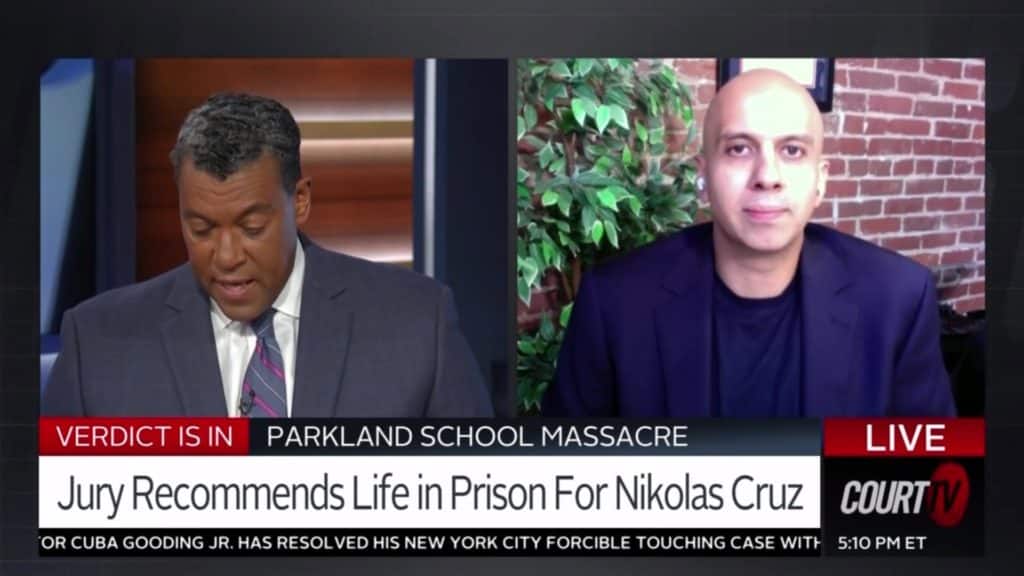Attorney Gabriel Sepulveda-Sanchez recently appeared on Court TV to discuss the decision of a jury to spare Nikolas Cruz from the death penalty in favor of life in prison without parole. Cruz killed 17 people and wounded 17 others in a 2018 massacre at Marjory Stoneman Douglas High School, one of the deadliest school shootings in U.S. history.
Disgust, outrage, and anguish were among the reactions as the verdict was read.
Why, after a horrific act such as the Marjory Stoneman Douglas High School massacre, would a jury vote for life instead of the death penalty for the shooter?
That’s the question victims’ families and the public is asking. After all, there’s no doubt that Nikolas Cruz committed this terrible crime with malicious planning ahead of time.
Members of the jury gave various reasons for their decision, which ultimately boiled down to “mitigating circumstances” that they did not feel “outweighed the aggravating circumstances.”
How the Jury Selection Process Could’ve Changed This Outcome
If you’re on the prosecution, when you’re selecting a jury for this type of case, you want to make sure you pick jurors who aren’t going to be as sympathetic to mental illness as an explanation.
That means you have to ask the right questions during voir dire, the jury selection process.
For example, how would a juror react if they heard someone had come from a bad upbringing, witnessed major trauma, or grew up with parents who were addicted to drugs or alcohol? Has a juror experienced these traumas themselves?
Mental illness doesn’t necessarily mean that you don’t know the difference between right and wrong. As the prosecution, you’d want to remove jurors who seem lenient on this issue.
How Much Damage Warrants the Death Penalty?
This case was tried in Florida, where juries must agree unanimously for a death penalty sentence. The death penalty is the ultimate punishment in our justice system and the way it’s set up makes it difficult for a jury to choose that sentence. We live in a country with protections in place for criminal defendants, which is ultimately a good thing.
During the trial, Nikolas Cruz actually pleaded guilty to the charges and stated in the courtroom that he wanted the victims’ family members to decide his punishment. But that’s not how our justice system works. And getting all jurors on board for the death penalty isn’t easy.
At the end of the day, life in prison without parole may not be the merciful choice that it seems at first. Nikolas Cruz has already had a difficult time in prison and he has no chance of ever getting out in his lifetime. He isn’t going to have a comfortable existence behind bars.
Click here to watch the Court TV segment where Gabriel goes into greater detail about this verdict and also discusses the trial of Darrell Brooks for a deadly Wisconsin parade crash.

